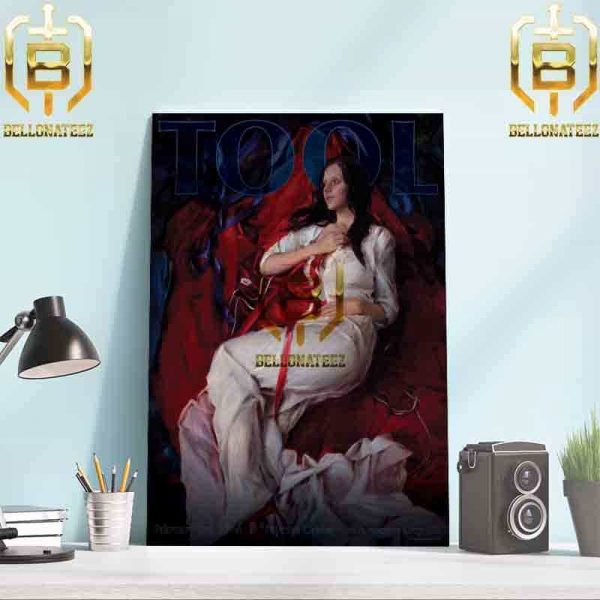
Dramatic TOOL Effing TOOL In Oklahoma City OK Tonight At The Paycom Center With Elder Febuary 3rd 2024 Home Decor Poster Canvas
- Fashion is an intricate reflection of society, a canvas where artistry, cultural evolution, and personal expression converge. Beyond its primary function of clothing, it encapsulates identity, beliefs, and the spirit of the times. From the historic origins of fashion, stemming from elaborate court attire to the modern runway spectacles, its journey is a testament to human creativity and innovation. Throughout history, fashion has transcended mere trends, embodying societal shifts. It’s a mirror reflecting economic, social, and cultural changes. The emergence of Haute Couture in the 19th century Paris marked the beginning of a legacy, introducing elaborate designs that became a symbol of status and refinement. Over time, fashion evolved, embracing various movements from the rebellious spirit of the 1960s to the minimalist trends of the 1990s, each era leaving an indelible mark on the industry.Designers are the architects of this ever-changing landscape, translating cultural influences into captivating collections that speak volumes about the zeitgeist. They innovate, not merely creating garments but crafting narratives that resonate with individuals on a personal level. Moreover, the democratization of fashion through social media and technology has empowered consumers, blurring the lines between high-end couture and street style, fostering inclusivity and diversity. Beyond aesthetics, modern fashion embraces sustainability and ethical practices, recognizing its responsibility towards the planet and humanity. This paradigm shift has influenced design approaches, with an emphasis on eco-friendly materials, ethical production, and circular fashion concepts. Fashion, a multifaceted realm, continues to evolve, adapt, and inspire. It remains an intricate tapestry, weaving together culture, creativity, and consciousness. Its transformative power goes beyond trends, shaping societal narratives, fostering self-expression, and reflecting the evolving ethos of our world.
- Fashion trends have evolved over the years, with different eras and cultures influencing what is considered fashionable. In recent years, streetwear has emerged as a dominant trend in fashion, with its roots in hip-hop culture and urban fashion. Streetwear is characterized by comfortable and casual clothing, often featuring bold graphics and logos. Streetwear has become increasingly popular among young people, with many streetwear brands gaining a cult following. While streetwear was once considered a niche trend, it has now become a major force in the fashion industry, with high-end brands such as Gucci and Louis Vuitton incorporating streetwear elements into their collections. Despite its mainstream popularity, streetwear remains a subculture at heart, with its own codes and aesthetics. Many streetwear enthusiasts value the authenticity and exclusivity of their clothing, and the subculture continues to evolve and innovate with new brands and styles emerging all the time.
- Fashion is a constantly evolving industry that has a significant impact on society, culture, and the economy. It is a form of self-expression that allows people to showcase their personality and individuality through their clothing choices. Fashion has been around for centuries, and its evolution has been influenced by a variety of factors, including cultural, social, and technological changes. One of the most significant factors influencing fashion is culture. Fashion is deeply rooted in cultural traditions, and different cultures have unique styles and clothing that reflect their values and beliefs. For example, traditional Indian clothing like the saree and salwar kameez are distinct from western clothing in terms of style, materials, and patterns. Similarly, traditional African clothing, like the dashiki and kente cloth, are also unique in their design and symbolism. These cultural differences and traditions have inspired designers to incorporate different elements into their fashion collections, creating unique styles that showcase the diversity of global fashion. Social changes have also had a significant impact on fashion. Fashion has always been a reflection of the social and political landscape of the time. In the 1920s, for example, women began to assert their independence and challenged traditional gender roles, leading to the emergence of the flapper style. The 1960s were marked by a spirit of rebellion and counterculture, resulting in the popularity of psychedelic prints and tie-dye. Today, fashion continues to reflect the social issues and concerns of the times, with designers using their collections to make political and social statements. Technological advancements have also played a crucial role in the evolution of fashion. Advances in materials science and production techniques have made it possible for designers to create new and innovative clothing designs. For example, synthetic materials like polyester and nylon have revolutionized the fashion industry, allowing for the creation of affordable, durable, and versatile clothing. Similarly, advancements in digital technology have made it possible for designers to create new patterns and designs with greater precision and accuracy. Sustainability has become an increasingly important issue in the fashion industry. The fast fashion model, which encourages consumers to buy and discard clothing quickly, has had a significant impact on the environment, leading to pollution and waste. In response, many designers and brands have embraced sustainable fashion practices, using eco-friendly materials and production techniques. Some designers have even created collections using recycled materials, demonstrating their commitment to creating fashion that is both stylish and environmentally responsible. Fashion is also a major driver of the global economy. The fashion industry employs millions of people around the world, from designers and manufacturers to salespeople and marketers. It is a highly competitive industry, with brands and designers vying for the attention of consumers through marketing and advertising campaigns. Fashion shows and events, like New York Fashion Week and the Met Gala, have become highly anticipated and influential cultural events that shape the tastes and preferences of consumers. Fashion has also become more inclusive in recent years, with designers and brands increasingly embracing diversity and inclusivity. Fashion has traditionally been associated with a narrow and unrealistic standard of beauty, but designers are beginning to challenge these norms. They are creating collections that celebrate a range of body types, skin tones, and gender identities, and featuring models from diverse backgrounds in their campaigns and runway shows. In conclusion, fashion is a multifaceted industry that has a significant impact on society, culture, and the economy. It is a reflection of cultural traditions, social and political issues, and technological advancements. As the industry continues to evolve, designers and brands are embracing sustainability and inclusivity, making fashion more responsible and reflective of the diversity of the world. Fashion will always be a form of self-expression and a way for people to showcase their unique style, and its ongoing evolution is a testament to the power of creativity and innovation.
Popular TOOL Effing TOOL In Oklahoma City OK Tonight At The Paycom Center With Elder Febuary 3rd 2024 Home Decor Poster Canvas
In recent years, the fashion industry has faced increasing scrutiny over issues such as sustainability and ethical production. Consumers are becoming more conscious of the impact their fashion choices have on the environment and on the people who produce their clothes. As a result, many fashion brands are beginning to adopt more sustainable and ethical practices. Sustainable fashion involves using environmentally-friendly materials and production processes, as well as reducing waste and pollution. Ethical fashion involves ensuring fair wages and working conditions for workers, as well as promoting human rights and social justice. While sustainable and ethical fashion may be more expensive or less accessible than fast fashion, they offer a way for consumers to make more conscious and responsible choices about their fashion consumption. By supporting brands that prioritize sustainability and ethics, consumers can contribute to a more sustainable and equitable fashion industry.
Home Page: Bellonateez
